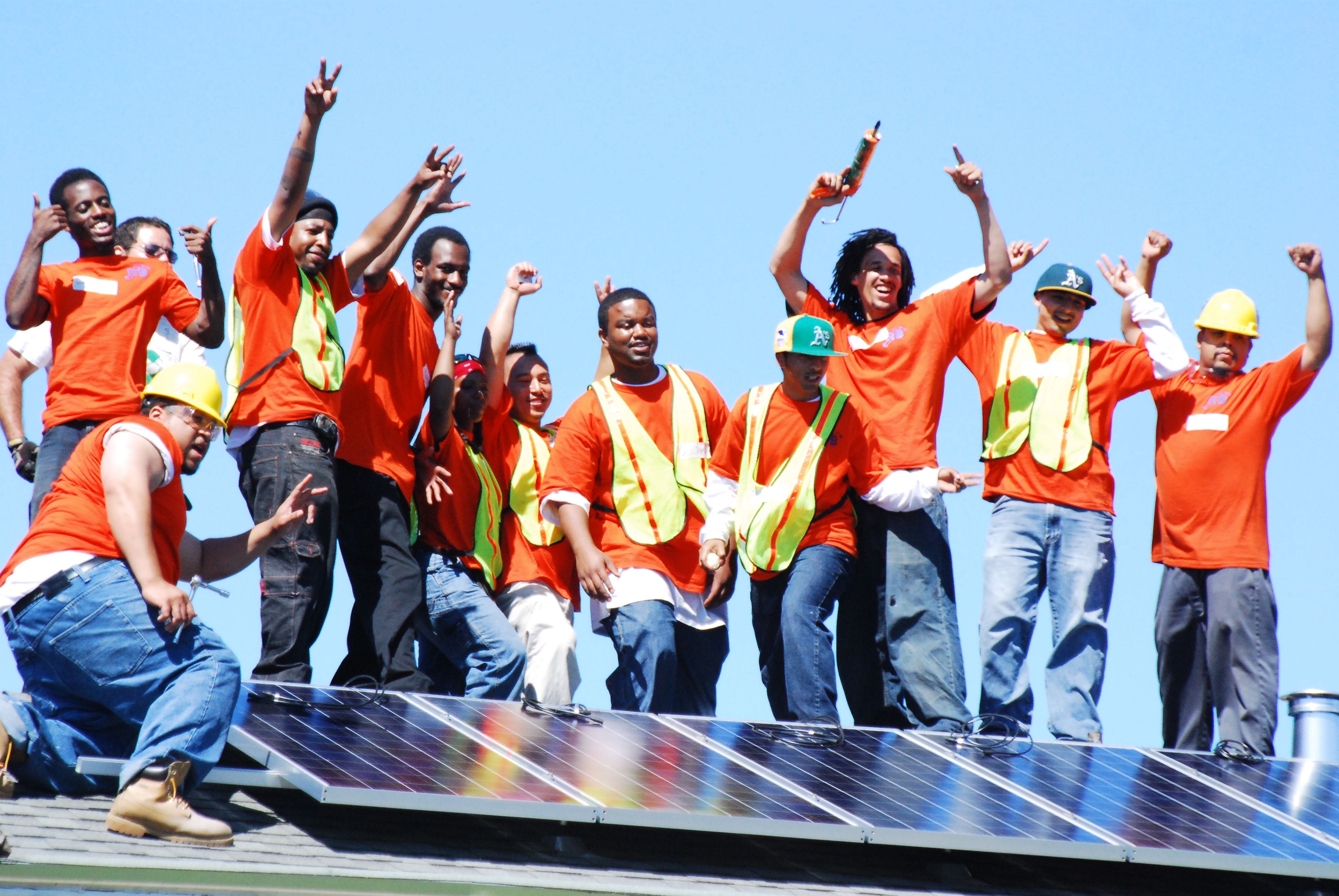As the Spanish saying goes, the sun is the poor man’s blanket. And thanks to technology, it’s also our heating system, air conditioner, refrigerator and a shinning spot that lights up our clean energy future.
The solar industry is the fastest growing sector of the US economy. It currently employs more than 200,000 workers, thousands of them Latinos, and double that of the coal mining industry. And for us Latinos, solar energy is a three-fold blessing.
“Since I had my rooftop solar panels installed last year, I spend less than half of what I used to pay for dirty energy,” says Oscar Medina, a client of Solar City in Tucson, AZ. “It not only keeps my home cool in the Arizona desert, it also allows me to avoid using power from dirty coal.”
And one of those thousands of Latino solar workers is Roberto “Bobby” Rosthenhousler, another Tucson resident, whose mother is from Los Mochis, Mexico. He enthusiastically supports solar.
“If you are Latino, this is a good choice,” says Bobby, who installs panels for Net Zero Solar. “As long as the sun is there, we are going to have a job. I want to be a pioneer because there is only room to improve in this industry.”
But dark clouds loom over solar —the backlash of public utilities. In the last four years, the explosive growth of rooftop solar has turned it into a severe threat to an archaic system based on a monopolistic model that heavily depends on dirty energy.
Take Arizona utility Tucson Electric Power (TEP), which owns, at least partly, four coal-burning plants, including the San Juan Generating Station in Northern New Mexico.
TEP is due to review its energy plan for the next few years, which presents it with the opportunity to drop at least a large part of its coal fleet and expand its clean, renewable energy portfolio. Alas, TEP plans to stick with the dirty coal plant, hike rates for its customers and damage Arizona's growing rooftop solar industry with new fees on solar customers such as Oscar.
Utilities across the country justify these rate hikes by arguing that rooftop solar clients continue relying on the electric grid without contributing their fair share to its maintenance. Study after study, however, indicates that rooftop solar reduces the stress and wear of the grid by using it less often. Furthermore, it limits the construction of expensive, dirty plants, thus substantially reducing coal pollution and the climate change it triggers.
These abusive practices may paint a bleak future for the rooftop solar industry. The clean energy progress, however, is unstoppable. A Cambridge University study indicates that photovoltaic solar panels will soon be more competitive than any fossil fuel energy. And this scares the living lights out of the energy dinosaurs.
“They need to let other environmentally friendly companies come in and provide a service that would especially benefit working-class families,” says Oscar. “It’s clear that utilities need to stop the pollution that makes people sick, especially us Latinos.”
“My four-year-old is autistic,” says Bobby. “And that’s one other reason I went into clean energy. I worry about all those chemicals in the air affect my child. This is something I can give back to him.”
No matter how hard the utilities try, you can’t block the sun with an umbrella.
